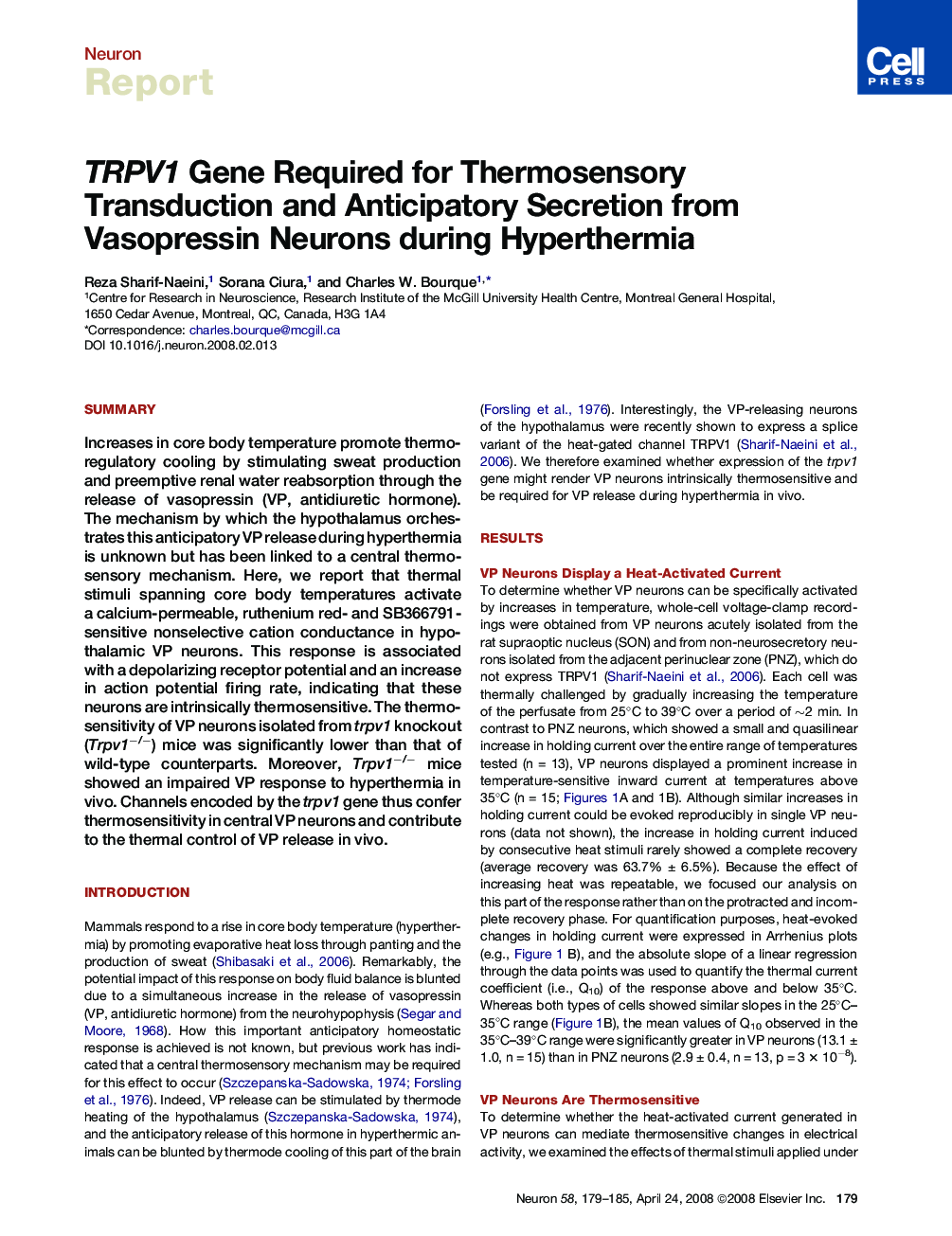| Article ID | Journal | Published Year | Pages | File Type |
|---|---|---|---|---|
| 4322460 | Neuron | 2008 | 7 Pages |
SummaryIncreases in core body temperature promote thermoregulatory cooling by stimulating sweat production and preemptive renal water reabsorption through the release of vasopressin (VP, antidiuretic hormone). The mechanism by which the hypothalamus orchestrates this anticipatory VP release during hyperthermia is unknown but has been linked to a central thermosensory mechanism. Here, we report that thermal stimuli spanning core body temperatures activate a calcium-permeable, ruthenium red- and SB366791-sensitive nonselective cation conductance in hypothalamic VP neurons. This response is associated with a depolarizing receptor potential and an increase in action potential firing rate, indicating that these neurons are intrinsically thermosensitive. The thermosensitivity of VP neurons isolated from trpv1 knockout (Trpv1−/−) mice was significantly lower than that of wild-type counterparts. Moreover, Trpv1−/− mice showed an impaired VP response to hyperthermia in vivo. Channels encoded by the trpv1 gene thus confer thermosensitivity in central VP neurons and contribute to the thermal control of VP release in vivo.
